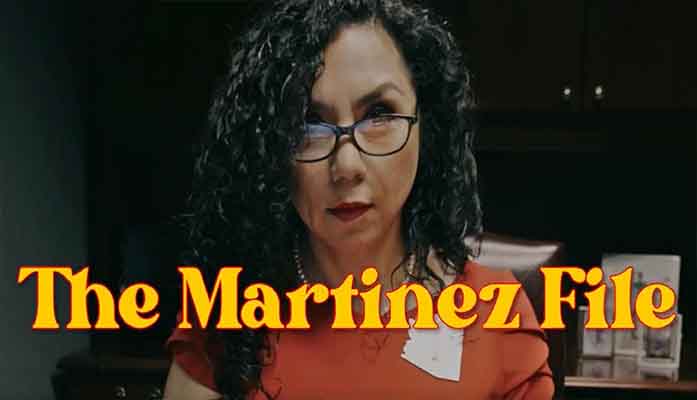
by Terri Jo Neff | Jun 21, 2022 | Education, News
By Terri Jo Neff |
Scottsdale Unified School Board member Jann-Michael Greenburg could be removed from office for actions he undertook last year to circumvent Arizona’s Open Meeting Law, and the Arizona Attorney General’s Office does not want taxpayer funds to be spent for Greenburg’s defense.
Those are just some of the items of relief the AGO suggests in its lawsuit filed Monday against Greenburg and SUSD for alleged OML violations in August 2021 when Greenburg -then the board president- cut off speakers during Calls to the Public and barred other speakers from discussing district-related issues even though such comments must be permitted.
Records show the AGO received several complaints last summer about how the SUSD board was conducting meeting at its members were considering a mask mandate and proposed instructional model. The district later told Assistant Attorney General Michael Catlett the board was permitted to apply content-based restrictions on Call to the Public speakers.
However, Catlett’s lawsuit asks a Maricopa County judge for a judgment that Scottsdale Unified School District and Greenburg violated the OML during the cited meetings. The AGO also seeks an order prohibiting SUSD from expending any public monies for Greenburg’s legal representation, although any civil penalty ordered upon Greenburg would be paid for from the District’s general fund.
The AGO’s lawsuit makes clear that a public body is not required to offer a Call to the Public during its meetings and hearings. But if it does, there cannot be undue restrictions on what speakers can say except that the comments must address topics falling within the public body’s jurisdiction.
“Purposefully structuring a meeting so as to apply content-based restrictions on public comments addressing an issue listed on the same agenda and discussed at the same meeting transforms the public comment session into something other than an ‘open call to the public,” according to the lawsuit, which the defendants must answer within 20 days of service.
MORE ON GREENBURG
The AGO’s legal action against Greenburg and SUSD comes just weeks after Vernal Lee Crow of Glendale was sentenced for criminal violations of the state’s Conflict of Interest law while he served as vice-chair of the Arizona School Facilities Board (ASFB)
Crow was indicted in November 2021 for four alleged violations of state law in connection with votes he took part in in 2016 and 2017 despite the decision benefited himself or a family member. He later pleaded guilty to knowingly failing to disclose his association with Red Tree Consulting and failing to recuse himself from a vote in 2016 which awarded $112,000 for a repair job at a school in the Snowflake Unified School District.
As part of the deal, Red Tree Consulting was paid $12,050 of those funds. In addition, Crow pleaded guilty to knowingly failing to disclose another conflict of interest involving Red Tree Consulting which received $42,200 from a roof construction contract approved by the ASFB in 2017 for a school within the Casa Grande Union High School District.
The Attorney General’s Office is also following a legal challenge filed by a Sierra Vista resident in February 2019 against the Cochise County board of supervisors for appointing one of the supervisors to a lucrative judicial position.
The AGO has submitted numerous briefs in the case, which is scheduled for a trial setting hearing Tuesday morning.
In the case, then-Cochise County Supervisor Pat Call was appointed to a vacancy for justice of the peace at double his county salary. Call did not cast a vote on the appointment, but he was openly involved in a decision to not seek interested applicants for the position despite the fact several were present at the meeting.
Call also took part in an executive session prior to being nominated immediately after the supervisors resumed the public portion of their meeting.
In a rare move, the Greenlee County judge hearing the case at the request of Cochise County’s presiding judge disclosed the normally secret minutes of that executive session. The judge noted “justice so demands” the release.
The Arizona Supreme Court ruled last fall that the local resident can sue Call and the other two Cochise County supervisors -Ann English and Peggy Judd- for alleged OML violations. In addition, Chief Justice Robert Brutinel wrote that as a county resident and constituent of the board of supervisors, the resident “has an interest in protecting against self-dealing by Board members.”
It is expected that any trial will not occur until early 2023. English and Judd remain on the county board, although the lawsuit seeks to have them removed from office.
Call completed his term as justice of the peace at the end of 2020. He did not run for the office in the 2020 General Election.

by Corinne Murdock | Jun 21, 2022 | Education, News
By Corinne Murdock |
On Thursday, a district court judge denied a mother’s motion to dismiss in a lawsuit filed against her by the creator of a dossier on parents who opposed his son’s tenure as school board president. The mother leaked the dossier, located on a Google Drive, to local reporters after noticing the URL in pictures sent to her by the school board president.
Mark Greenburg — father of the former board president of Scottsdale Unified School District (SUSD) who had access to the dossier, Jann-Michael Greenburg — sued SUSD parents Amanda and Daniel Wray for allegedly violating the Computer Fraud and Abuse Act (CFAA), a federal law on unauthorized computer access. The Wrays countered by filing an anti-SLAPP motion to dismiss, which claims that a lawsuit is filed strategically to prevent public participation. Judge Douglas Rayes, an appointee of former President Barack Obama, denied the Wrays’ motion to dismiss.
Rayes said his decision was a “close call.” He acknowledged that the elder Greenburg lacked a password protection on the Google Drive, therefore making it accessible to anyone with its link. However, Rayes agreed with the elder Greenburg’s argument that this lack of security didn’t render the Google Drive dossier open to the public, and that Wray’s inadvertent discovery of the URL didn’t give her authorization to access the dossier.
The Rayes declared that the elder Greenburg “sufficiently plead the elements of a violation” of the CFAA. He established a scheduling conference on July 7 at 11 am, with a deadline for a revised proposed discovery plan on June 30.
Wray deferred to her counsel for comment.
In a statement to AZ Free News, Harmeet Dhillon — the managing partner of Dhillon Law Group representing Wray — clarified that the judge’s decision only reflected Greenburg’s allegations and didn’t constitute Rayes’ final decision on the case.
“A motion to dismiss is typically made at the outset of most cases in federal court, and it is a test not of the facts of the case, but rather of the plaintiff’s allegations,” said Dhillon. “While we respectfully disagree with the court’s ruling and believe the law requires dismissal at this stage, we look forward to the discovery phase of the lawsuit and to establishing the actual facts in this case.”
Corinne Murdock is a reporter for AZ Free News. Follow her latest on Twitter, or email tips to corinne@azfreenews.com.

by Corinne Murdock | Jun 20, 2022 | News
By Corinne Murdock |
A superior court judge rejected Arizona Attorney General Mark Brnovich’s complaint against Secretary of State Katie Hobbs’ election manual last Friday because he filed it too close to ongoing elections.
Yavapai Superior Court Judge John Napper expressed concern that siding with Brnovich would disrupt this year’s elections.
Napper acknowledged that Hobbs’ 2021 Elections Manual and Procedures (EPM) required editing and revision. However, he declared that Brnovich’s refusal to work with Hobbs on the proposed EPM didn’t mean that Hobbs didn’t fulfill her lawful duties, noting that Brnovich had from October 1 to December 31 to work on the EPM with Hobbs, as prescribed by statute.
“The parties’ failure to properly work with one another to improve the Secretary’s initial draft of the EMP [sic] does not mean she failed to perform a ministerial or discretionary act requiring a mandate from the Court,” wrote Napper. “At this point in the game, there is no mechanism for the Court to assist the parties in constructing an EMP [sic] which complies with A.R.S. § 16-452 within the timeline of the statute. The Complaint was filed far too late for this to occur without disrupting elections that have already begun.”
That doesn’t mean that Hobbs’ latest EPM will be used in current elections. Napper noted that election officials are following the EPM from 2019 since it was submitted and approved properly by both the governor and attorney general.
Hobbs celebrated the ruling. She characterized Brnovich’s complaint as “an attempt to rewrite the election rules” for political gain. Brnovich didn’t issue a public statement on the ruling.
Hobbs’ criticism paralleled those of opponents to her 2021 EPM, who argued that she was incorporating certain changes — such as allowing certain votes to be cast at the wrong precinct — to benefit her gubernatorial campaign.
Brnovich filed his complaint against Hobbs for the 2021 EPM at the end of April.
Corinne Murdock is a reporter for AZ Free News. Follow her latest on Twitter, or email tips to corinne@azfreenews.com.
.

by Corinne Murdock | Jun 20, 2022 | News
By Corinne Murdock |
The valley’s first annual Juneteenth celebration from Black Lives Matter (BLM) Phoenix Metro, a fundraiser, ended before it started due to a low level of community interest.
“Hey BLM family! Deepest regrets but our Juneteenth event is postponed. We’ll keep you all updated on the new date. Juneteenth is a very important holiday that should be taken seriously and celebrated,” wrote the organization. “We unfortunately did not have the capacity or momentum behind this event to put it on this year. We were hoping for this to be an awesome event. Stay tuned for our next big celebration.”
Those wishing to attend were asked to pay a minimum of $50 for general admission, which came with a swag bag, limited edition BLM shirt, and one green raffle ticket which could win designer sunglasses or other luxury items with a $500 to $1,000 value.
There were other, higher-priced tickets: $100 for a “supporter”-level ticket, which came with the general admission items plus an additional green raffle ticket, and a “trailblazer”-level ticket, which came with the general admission items plus an additional red raffle ticket for winning luxury items over $1,000 in value. A limited, undisclosed number of “solidarity” tickets for low-income and BIPOC-only individuals (Black, Indigenous, People of Color) were available for $25.
The organization, which has over 10,000 followers on Twitter and over 33,400 followers on Instagram, first announced the event in early May.
BLM Phoenix Metro explains that part of its mission is dismantling white supremacy, abolishing police and prisons, and prompting community healing from generational trauma. As part of their “Who We Are” page, the organization quotes Assata Shaukur, the infamous cop killer and FBI Most Wanted Terrorist.
Some of the organization’s most recent work included protesting outside Phoenix City Hall against increased funds for the police force.
Corinne Murdock is a reporter for AZ Free News. Follow her latest on Twitter, or email tips to corinne@azfreenews.com.

by Corinne Murdock | Jun 20, 2022 | News
By Corinne Murdock |
In honor of Juneteenth, the Customs and Border Patrol (CBP) Tucson Field Office announced that hours for the Lukeville Port of Entry would be extended.
The announcement came out a day after CBP released the May numbers for illegal immigrant encounters — another record high. CBP has also faced an increase in drug and human trafficking. Earlier this month, CBP caught a trafficker passing through the Lukeville Port of Entry with 45 pounds of meth in a fuel tank. That’s over 20,400 grams, enough to cause an overdose in over 10,000 individuals. Overdose rates on meth vary according to drug purity and individual tolerance, but overdoses have been reported in those who ingested just several grams.
Earlier this month, the Lukeville Port of Entry’s asphalt repair was the Biden administration’s first completed project through funding the Bipartisan Infrastructure Law. The law includes $3.4 billion for 26 construction and modernization projects at land ports of entry like the one in Lukeville. The GSA estimated that the billions will create an average of 6,000 jobs over the next 8 years.
The GSA also claimed that these ports’ commercial capacity limits were putting further strain on the ongoing supply chain crisis.
Biden declared Juneteenth a federal holiday last year, or “Emancipation Day.” The holiday celebrating former President Abraham Lincoln’s emancipation of slaves originated with small church gatherings in Galveston, Texas in 1866. Lincoln issued the Emancipation Proclamation three years prior in the midst of the Civil War. At the time, Texas was part of the Confederacy, which explained in part why the proclamation wasn’t honored immediately.
Union troops’ enforcement of Lincoln’s proclamation occurred June 19, when they arrived in Galveston, Texas to inform Texans that the Civil War had ended. Union Major-General Gordon Granger read aloud General Order No. 3 to the people of Galveston, declaring all slaves in Texas to be free.
Modern Juneteenth celebrations have also become an avenue for further social justice advocacy, such as adopting diversity, equity, and inclusion policies, according to the founder of D.C.-based Juneteenth Foundation, Laquan Austion.
The holiday comes across as controversial for those who believe that Independence Day on July 4, the commemoration of the Declaration of Independence’s ratification, serves as the formal holiday for celebrating freedom and unity.
Corinne Murdock is a reporter for AZ Free News. Follow her latest on Twitter, or email tips to corinne@azfreenews.com.

by Corinne Murdock | Jun 19, 2022 | News
By Corinne Murdock |
Arizona House Republicans took a novel approach to informing constituents with a new short video series, “Under the Copper Dome,” delivering information in an entertaining fashion.
The GOP caucus’ debut two-minute clip followed Majority Whip Leo Biasiucci (R-Lake Havasu City) as he reenacted discussions of HB2696, a bill increasing prison time for those who sexually abuse, smuggle, or traffic children.
The video depicted Biasiucci explaining his bill to several state representatives, including John Kavanagh (R-Fountain Hills), who gave enthusiastic support. A group of GOP legislators walked together with Biasiucci into the Arizona State Capitol, with upbeat music playing in the background. The video concluded with Biasiucci addressing the viewers directly to discuss HB2696. He thanked Arizona law enforcement for working to end crimes against children.
“[My bill] will bring the hammer down on these heinous crimes and ensure a safe Arizona for everyone,” said Biasiucci. “With this law, and another I sponsored last year toughening punishments for child sex traffickers, Arizona is leading the fight against trafficking and smuggling.”
The caucus’ efforts earned the approval of Congressman Paul Gosar (R-AZ-04). Gosar’s social media team puts out information with an entertainment edge, sometimes perceived by political opponents as controversial. Gosar was punished for a meme video parodying several Democratic members of Congress as villains in the intro from the cult classic anime “Attack on Titan,” with him parodied as the hero.
The caucus drew from Gosar’s short video series, the Gosar Minute, as inspiration. One of the principal creators behind the video series, State Representative Teresa Martinez (R-Oro Valley), has served as Gosar’s Hispanic Outreach and Coalitions Director.
Twitter shadowbanned the Gosar Minute hashtag for those with the “hide sensitive content” search filter turned on.
Corinne Murdock is a reporter for AZ Free News. Follow her latest on Twitter, or email tips to corinne@azfreenews.com.






